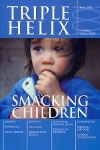The Mental Capacity Bill,[1] which gives full statutory force to advance refusals of food and fluids, passed its third reading in the House of Commons on 14 December 2004 by a majority of 354 to 118 amidst huge controversy about it bringing in 'back-door euthanasia'.[2] The government employed a three-line whip and the vast majority of supporting MPs did not attend the debate. 34 Labour MPs voted against the government and 100 abstained on grounds that they should have been allowed a conscience vote on such an important life and death matter. The bill now passes to the House of Lords. The medical profession has been largely silent throughout the proceedings.
Meanwhile, the Lords' Select Committee considering Lord Joffe's Assisted Dying for the Terminally Ill Bill,[3] has been hearing evidence and, according to sources close to proceedings, is now divided 8-5 in favour of the Bill. It will recommend a course of action to the House of Lords early in the New Year.
Both the Royal College of Physicians (RCP)[4] and the Royal College of General Practitioners (RCGP)[5] have chosen not to oppose the Bill in giving evidence to the Select committee. Furthermore the RCP spoke out on behalf of the Academy of Medical Royal Colleges apparently without actually consulting those colleges or its own membership. It is largely because of this that members of the Select Committee now believe that the medical profession is not opposed to the Bill.
This is despite the fact that the BMA, GMC, Royal College of Nursing (RCN), the Association of Palliative Care Specialists and CMF[6] all opposed the bill - although ironically three (unelected) members of the BMA Ethics committee - John Harris, Sheila McLean and Evan Harris - all appeared before the Select Committee representing the Voluntary Euthanasia Society which was supporting the bill.
The decision as to whether euthanasia becomes law is now poised on a knife-edge. It is imperative that Christian doctors protest to the Presidents of their own Royal Colleges[7] urging them to make clear their positions and to oppose the Bill.
In urging that doctors will rise up in protest I am reminded of the judgment of the War Crimes Tribunal in 1949:
'Had the profession taken a strong stand against the mass killing of sick Germans before the war, it is conceivable that the entire idea and technique of death factories for genocide would not have materialized... but far from opposing the Nazi state militantly, part of the medical profession co-operated consciously and even willingly, while the remainder acquiesced in silence. Therefore our regretful but inevitable judgement must be that the responsibility for the inhumane perpetrations of Dr Brandt...and others, rests in large measure upon the bulk of the medical profession; because the profession without vigorous protest, permitted itself to be ruled by such men.'
































